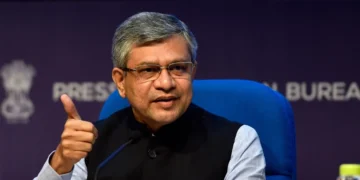Blitz Bureau
NEW DELHI: Over the past decade, India has emerged as one of the fastest-growing bio economies in the world, with the sector expanding to $165.7 billion in 2024 from just $10 billion in 2014. With an ambitious target of $300 billion by 2030, the bio economy is steadily becoming a cornerstone of India’s sustainable growth and innovation, driven by advancements in biotechnology, agricultural innovation, bio manufacturing, and healthcare. The four key subsectors of the country’s bioeconomy comprise BioIndustrial (47 per cent), BioPharma (35 per cent), BioAgri (8 per cent), and BioResearch (9 per cent), according to official figures.
Significant biotech milestones achieved by India in 2025 include consolidating its position as a top vaccine manufacturer. According to the WHO Global Vaccine Market Report, the Serum Institute of India’s share of the global vaccine market, excluding Covid-19 vaccines, rose from 19 per cent in 2021 to 24 per cent in 2024. This was driven by higher production of pneumococcal conjugate vaccine (PCV), measles-rubella (MR), and tetanus-diphtheria (Td) vaccines.
The global vaccine market is highly concentrated, with 10 manufacturers supplying over 80 per cent of vaccines. Three of these – Serum Institute, Bharat Biotech, and Biological E – are from India. Indian firms supplied 40 per cent of the WHO’s vaccine purchases, with a large share used domestically. About 20 per cent of India’s vaccine exports went to the WHO African Region.
India has also achieved 20 per cent ethanol blending (E20) in petrol in 2025, five years ahead of the original target. This is a steep rise from 1.5 per cent in 2014 and reflects the country’s progress towards building a sustainable bio-economy. The programme has delivered multiple bio-economy benefits, including higher incomes for farmers who, between Ethanol Supply Year (ESY) 2014–15 and June 2025, received Rs 1,21,000 crore for ethanol feedstock, eliminating sugarcane arrears and improving the viability of maize cultivation.


























